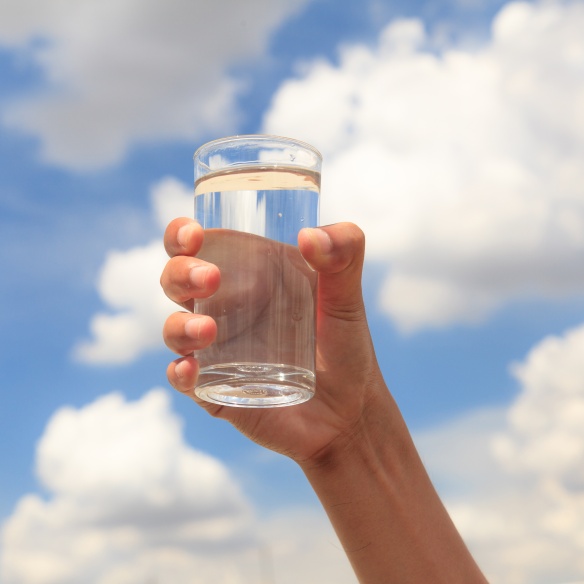 Adipsia is the fancy name for the loss of the sense of thirst. As we get older, our sense of thirst diminishes, just as our sense of smell and taste diminish. Chronic dehydration is one of the most common problems among seniors and the elderly who reside in care facilities.
Adipsia is the fancy name for the loss of the sense of thirst. As we get older, our sense of thirst diminishes, just as our sense of smell and taste diminish. Chronic dehydration is one of the most common problems among seniors and the elderly who reside in care facilities.
If you have a loved one at home with dementia or in a care facility it’s important that you learn the signs of dehydration (below) and offer water or another beverage to your patient every hour and throughout the day.
Many older adults often limit their fluid intake because they may be incontinent or fear accidents. Those who have limited mobility may try to avoid another trip to the toilet. Individuals who have aphasia (inability to speak due to dementia or brain damage from stroke, etc.) may not be able to express their thirst.
Better monitoring of fluid intake is needed at care facilities
Studies have shown that nearly all nursing home residents suffer from inadequate hydration. Additionally, in one study, 25 out of 40 participants suffered from diseases that may have been caused or exacerbated by their being dehydrated.
If your loved one is in a care facility now—during the COVID-19 pandemic–it is more important than ever to try to encourage them to drink. Ask the staff to put signs up in their room as a reminder. It’s especially important if your loved one has dementia and forgets to drink or is not thirsty.
What happens when you are dehydrated?
Your blood begins to thicken, which interferes with normal blood flow and viscosity. This is one of the reasons why, especially during the pandemic, it’s crucial to stay hydrated. There have been many reports of blood clots and other cardiovascular episodes in patients with COVID-19. The kidneys, liver, pancreas and other organs can be severely affected from dehydration, and severe dehydration can lead to acute pancreatitis in some individuals.
Dehydration can interfere with brain function
This is a good example of what happens when our brains are dehydrated. My mom wasn’t able to walk the last two years of her life, and was dependent upon two private caregivers. She also drank thickened water, which is a disgusting thickened pudding-like liquid that substitutes for water. The reason? She aspirated water and food into her lungs, which caused her to cough. Sometimes, the result was pneumonia. She may have felt thirsty and not wanted to bother with the thickened water, or maybe she wasn’t thirsty. But she ended up being severely dehydrated on more than one occasion.
When Mom was admitted to the hospital for a UTI (urinary tract infection), she developed delirium. A psychiatrist called me to report that my mom was exhibiting full-blown dementia. I had just spoken to Mom a day before and she sounded fine. I refused the offer of an antipsychotic drug for her, knowing well the high risk of putting an older adult on those drugs. (see Why you should throw away that antipsychotic drug prescribed for your loved one). As it turned out, my mom was severely dehydrated. After a couple days on a hydrating intravenous solution she returned to her normal self.
It’s important to learn the signs of dehydration in everyone, but especially in seniors and young children. The physical symptoms are usually clear:
- dry lips and sticky or dry mouth
- no tears when crying
- dry, papery skin that tents when it is pressed
- decreased urine output
- sunken eyes
- headache
- lethargy
- dark urine
- extreme thirst
- unable to sweat
- fast breath rate
- low blood pressure
- the mental symptoms are not as obvious, but can result in mental confusion, irritability, delirium
- extreme cases of dehydration can lead to loss of consciousness, coma, kidney failure, and seizures.
Ways to stay hydrated
If you are a caregiver (and that includes caring for yourself!) here are some helpful guidelines:
The rule of thumb is to have 48 to 64 ounces of non-sweetened, non-artificially sweetened drinks. Hydration keeps the body in proper pH (how acidic or alkaline your body is) and protects it from getting dehydrated, which is a cause of inflammation and other kinds of imbalances. Dehydration can also contribute to urinary tract infections (UTIs).
- Encourage and remind your care partner to drink.
- Drinking healthy fluids is important as eating healthy foods. Water is the top choice, followed by herbal teas, milk, vegetable and fruit juices. Remember that juices contain a lot of sugar, both natural and added, so don’t overdo them. Soups are nourishing and hydrating but be aware of the sodium content. Avoid carbonated and caffeinated drinks which have a diuretic effect.
- Serve liquids at a temperature that your care partner likes. Not everyone enjoys ice water.
- Flavor water with lime or lemon.
- Remind your care partner not to wait until s/he is thirsty. By then s/he is already dehydrated.
- Serve juicy fruits such as watermelon, which contain lots of water.
- Offer healthy popsicles as an addition to drinks and to those who refuse water.
- Smoothies and shakes are nourishing and filling.
The next time your mind is muddled, drink a tall glass of water and notice the difference. Drink plenty of water, fresh juices, and herbal teas to stay hydrated, flush out toxins and enjoy mental clarity. It is especially important now as we head into summer and during the COVID-19 pandemic. But it’s just as important all year round.

